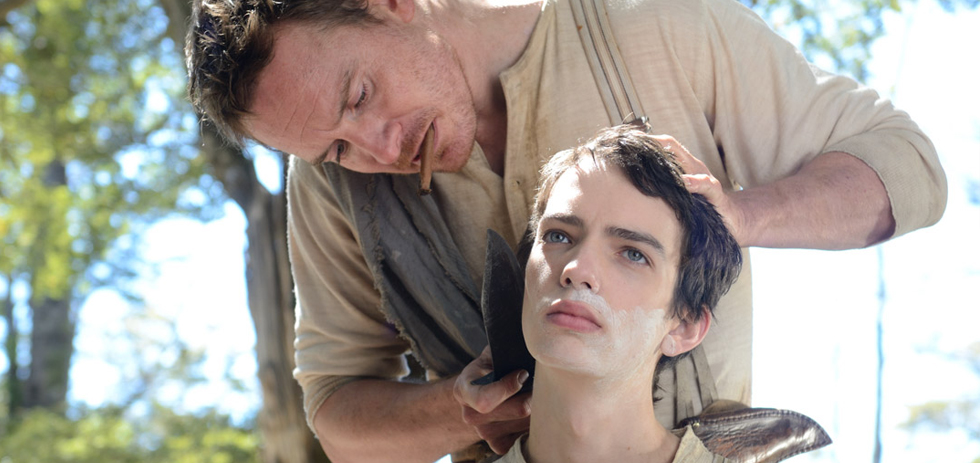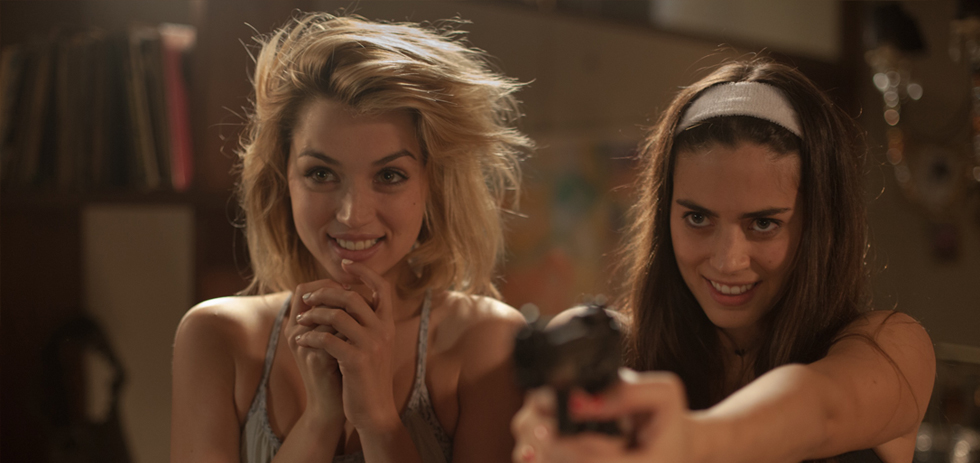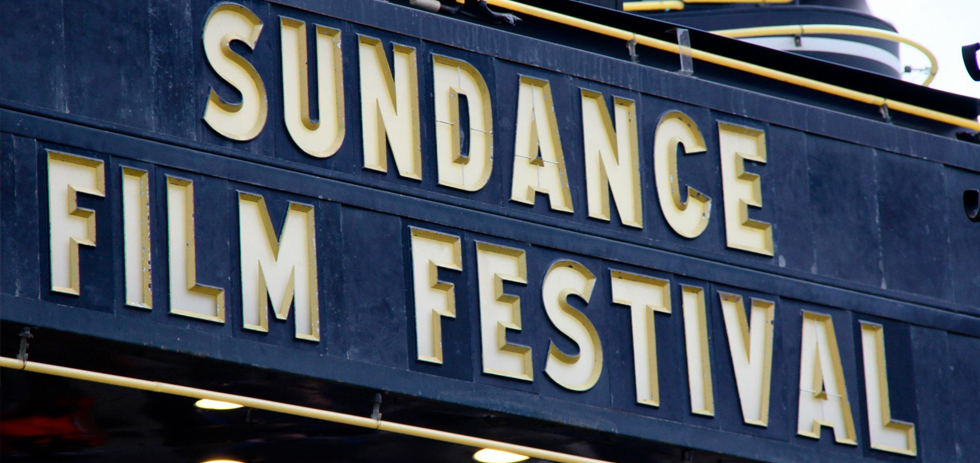Now that Sundance has ended a whole host of films have suddenly become hot property for other international festivals. Whether crowd-pleasers, controversial documentaries or the return of seasoned auteurs, there’s a lot in this year’s Sundance program to get excited about (hopefully) seeing at SFF, MIFF and beyond.
Conor Bateman: A new Guy Maddin feature is a very exciting prospect, as much for the fact that he has a new film as that we can never really know what the hell it’s gonna be about or feel like until we see it. The Forbidden Room is, as far as we can tell, a feature version of his long-gestating art project Séances, also with collaborator Evan Johnson, and both take inspiration from silent cinema, purporting to resurrect forgotten scripts and actors. Maddin’s last feature, Keyhole was visually inspired by much of the same material, a psychosexual and surreal journey through the depths of one house, it shares some of the visual style expected from The Forbidden Room. The closest comparison in his later work, though, is likely the séance sequences from his masterful docu-fantasia My Winnipeg. 1 The critical response to Maddin’s latest film was either ecstatic or befuddled, and that’s not so much of a surprise, Maddin is never one to make easily accessible cinema and part of the enjoyment is becoming completely absorbed in his often totally confusing worlds.
Another feature I’m especially excited to see is Rodney Ascher’s The Nightmare. Ascher, whose last film was Room 237, the amusing and subtly clever conspiratorial documentary about The Shining, has once more crafted a non-fiction-ish documentary, with The Nightmare chronicling episodes of sleep paralysis. Like with Room 237, here he crowdsources his subjects, and the reported lack of any medical professionals further cements Ascher as a documentarian more concerned with a base emotional and mental reaction moreso than clinical dissection of it. The docos selection at Sundance was strong broadly, and I’m also very eager to see the latest works from Brett Morgen and Alex Gibney, Kurt Cobain: Montage of Heck and, Going Clear, respectively.
Jeremy Elphick: The sociopolitical atmosphere in the United States of America at the moment is more focused than it’s been in a very long time. The killing of Jordan Davis has been one of the many recent examples of the deep injustice and structural terror that permeates the US sociopolitical system. With the #blacklivesmatter movement stemming from the death of Trayvon Martin and subsequent African American youth receiving the impetus and momentum it deserves, 3½ Minutes is a film that examines in detail a single one of these lives. I feel this is one of the strongest picks out of Sundance because it’s something that really cuts into the ideas of autonomy and collaboration in an issue where both are required to a degree. Marc Silver isn’t an African American director and as a result, his interaction with the community – no matter how strong his empathy for their concerns is – remains that of an outsider unable to ever truly understand and reflect how many African Americans feel in the current climate. Silver has, however, worked with Davis’ family closely in making this documentary and this shows in footage from the final product. Silver does not try to make the situation his own, but instead gives focus to the voices of Davis’ family and other commentators on the events. 3½ Minutes won’t be the definitive film on the social movement developing in the United States, however it will be one of the first, and I think watching it critically will be important in understanding how film is able to and isn’t able to portray stories that exist within a broader context of events that are current and nailed to the present.

Brad Mariano: From The Outlaw Josey Wales to Dead Man, I love slow westerns, something John Maclean’s debut feature, Slow West seems to promise and then some. Strong word of mouth has the festival circuit buzzing about this period film starring Michael Fassbender, and particularly intriguing is the casting of ubiquitous character actor Ben Mendelsohn as the heel – there hasn’t been an actor with such a strong physiognomy of a Western villain since Lee van Cleef. That director Maclean brings a British background to the Western offers the possibility of a particularly interesting interpretation of the genre as well, to say nothing of the reports from Sundance that the film is a peculiar experience indeed – absurd and meandering, with more than a little hint of Maclean’s musical, rather than film, background influencing the film’s overall feel. Like something you see on a boutique bar menu, a twist on an old-fashioned is always welcome, and this stab at the Western is one of my most awaited films of the year.
Catherine Jane: Sembene!, the 2014 documentary directed by Samba Gadjigo and Jason Silverman is an impassioned eulogy to the ‘Father of African Cinema’ Ousmane Sembene. The project began in 2007 with the passing of the iconic filmmaker, a close friend and mentor to Gadjigo. Considered one of the first Black Africans to make a film in Africa, the Senegalese novelist-turned-director Sembene spent his impressive 40-year career dedicated to telling stories to and about his own people, reclaiming the aesthetics of African cinema from the white ethnographic film tradition. The documentary memorializes Sembene’s life and work, which has had a broad sphere of influence on filmmakers both within and outside of Africa, yet who Gadjigo and Silverman fear is in danger of being forgotten in the mainstream, as many non-western pioneers often are. What is most fascinating and touching about documentary, with its strong personal dimension, is the parallels between Gadjigo and Sembene. Gadjigo, an academic, came to the project with zero production experience, while Sembene’s commitment is to the importance of telling stories as way to preserve and celebrate African identity. Sembene! comes as an important homage to this prolific self-taught artist and the undeniable contributions diasporic filmmakers have made to cinema at large.
Virat Nehru: I’ll admit firsthand that I’m emotionally invested in how The End of the Tour turns out. David Foster Wallace’s work and personality have had an unquantifiable impact on my short life thus far. I was consumed by equal parts of pleasure and fear when I first heard that the late author would be resurrected on screen for the benefit of mass public consumption – the cruel irony of which would not have escaped Wallace himself: a person who had a diabolical relationship with fame, of not wanting to be seen as the kind of person who would want the many accolades and laurels that were bestowed upon him. Hence, it’s understandable why Wallace’s Literary Estate has not endorsed the film. In the larger public consciousness, Wallace is the author who wrote that Roger Federer piece and a novel that most would boast of having started, but not many would’ve actually finished – Infinite Jest. But beyond the constructed image of the ‘literary genius’ that’s always hounded Wallace, there lies a vulnerability of a person whose continuous struggle with depression, medication and his unique way of seeing the world that makes him a fascinating subject that can connect with audiences on a human level.
Director James Ponsoldt, who’s become a Sundance staple, seems to get the best out of his cast and scripts (see for example, Miles Teller’s breakout performance in The Spectacular Now). He has once again chosen some interesting screenplay material and casting. The screenplay by Donald Margulies is based on David Lipsky’s book Although Of Course You End Up Becoming Yourself, which is basically an extended dialogue between Lipsky and Wallace during Wallace’s promotional tour for Infinite Jest. Adapting a two-person dialogue heavy base material to the cinematic medium presents its own challenges. Add to that the casting controversy of choosing Jason Segel – an actor known largely for his comedic repertoire to portray Wallace, which sent the internet into a frenzy! However, from initial reviews, Segel has not portrayed Wallace ‘the literary genius’ – a figure about whom a lot has been written about and someone I haven’t the slightest interest to see on-screen – but rather, he’s portrayed Wallace, ‘the person’ – who quite frankly, we don’t know a lot about because we can’t stop fawning over the ‘literary genius’. Which Wallace will we get to see? I’m pretty keen to find that out.
Isobel Yeap: Hot Girls Wanted is a documentary about amateur ‘porn, the internet and the girls next door’. It examines the amateur porn world and the barely adult girls who get involved. The film is directed and produced by Jill Bauer, who also directed and produced the documentary Sexy Baby, which investigates the impact of internet culture on modern notions of sex appeal. Hot Girls Wanted follows one girl who thinks that amateur porn could be the ticket out of her small town life. I’m interested in seeing the film because it has been produced in partnership with the Kinsey Institute of Sex Research. Also, having already produced Sexy Baby, Bauer appears to be something of an expert on sexuality in the age of internet culture, and it will interesting to see how she portrays notions of empowerment and consent – issues fraught for contemporary feminism.

Luke Goodsell: Horror films made with a certain austere gravitas are too rare a commodity these days, and the debut feature for Robert Eggers looks set to address that absence—it’s the kind of film where one glimpse of a production still can inspire excitement to see the thing in motion. When the director cites both Kubrick’s The Shining and Bergman’s Cries and Whispers as key influences, well, my ticket’s as good as bought. Set in New England in 1630, The Witch deals with the effects on a family and puritan community resulting from a supernatural disturbance; familiar enough territory, but reportedly delivered with a chilling assuredness: ominous sound design, distinct compositions, and a mood that I’ve seen linked to references as varied as The Crucible and Malick. Given the usual pitches of most Sundance fare, it definitely wasn’t hard for this to land on my must-see radar. Anyone who caught director Sean Baker’s Starlet—one of the underseen gems of 2012—will already be clamouring to see what he’s up to next. That and Tangerine’s tart log-line—”A working girl tears through Tinseltown on Christmas Eve searching for the pimp who broke her heart”—should be enough to elevate Baker’s new film to the top of any watchlist. The twist here is that Baker’s lead actresses are transsexual, and that Tangerine is apparently an out-and-out comedy, which will make the film an especially curious experience.2 With Baker’s sublime visual eye and dashes of Harmony Korine and John Waters in the mix (per The Hollywood Reporter, at least), I’m already hoping this will replace Miracle on 34th Street as the world’s Yuletide go-to programming.
Grace Sharkey: James Franco is weird guy. He makes odd film choices and everything he does seems to be dripping with intention – for what? No one can be sure. He is also very fond of playing gay characters. He always gives the impression that he feels this is a subversive, artistic move (it’s not), but I Am Michael does seem to be a reasonably subversive film. It’s definitely not the average gay film. It seems we are meant to identify with a man who denounces his homosexuality in favour of becoming a Christian pastor. The gays are always either evil or sympathetic, those are the options. It will be interesting to see how this film rides the line of portraying such a controversial figure sympathetically, without validating his choices. It seems to be about Christianity. This movie will be quite the ride. Zachary Quinto as the ex-boyfriend in his first gay role after coming out? That alone is enough to get me to a screening. From a fairly unknown director, it might not even be a very good film, but it appears to be an undeniably interesting one that I’m looking forward to.
Dominic Barlow: In 2011, Colarado cartoonist Sam Klemke found viral fame by splicing together footage from the last few decades of his life (viewable here), and so Australian director Matthew Bate goes to investigate further in a new documentary feature, Sam Klemke’s Time Machine. The narrative, written by Bate and Sandy Cameron, promises not just to raid his hours upon hours of tapes, but to weave in epochal events from the wider world in a manner not unlike the interstitial titles of Summerton and fellow producer Sophie Hyde’s 2014 drama 52 Tuesdays. In that way, it explores humanity’s desire to self-determine through documentation, which is even closer to home in the social media age than when Klemke first turned on his camera in 1977. Bate and producer Rebecca Summerton brought us I Want to Dance Better at Parties, the short that deservedly took out the top Dendy Award at the Sydney Film Festival, so Klemke will surely be adorning the trailers for the 2015 programme.
Results, Andrew Bujalski’s follow-up to the benignly freaky Computer Chess, reportedly retains the hesitance to create too strong a plot, but has a cast with famous enough faces to come across like it does. The likes of Cobie Smulders, Guy Pearce and Giovanni Ribisi play gym junkies needled by the American culture of self-improvement, and film supposedly does the same to the audience through the vessel of Bujalski’s ennui-laden mumblecore stylings. It’s an odd pairing of author and subject, but given how Computer Chess portrayed the oddball bravado of competitive hobbying, I’m keen to see what he finds in people relentlessly chasing physical perfection; another strand of individualisation that could complement Sam Klemke nicely.

Jake Moody: Recent years have seen resurgences in several horror subgenres previously languishing in the critical basement: the grisly psychological terror of the home invasion drama, unabashedly (s)exploitative Euro torture porn, and the knowing but dated subgenre of horror self-parodies have reappeared from of the 70s, 80s and 90s respectively to thrill audiences again – think Martyrs, the execrable (hah!) Human Centipede films, and Cabin in the Woods for starters. What’s most interesting, though, is how some of these millennial horror-hybrids have begun to feature in festival line-ups, indicating a renewed appreciation for the art of horror beyond multiplexes, with Sydney Film Festival screening the schlocky and brutal You’re Next in 2013 to give just one example. With Knock Knock, Eli Roth – of Hostel fame, and so no stranger to reworkings of horror genres – seems to be gearing up for another entry into this canon. The real pull of the film for me, though, is a rare appearance from a genuine star in what may otherwise appear a low-budget splatter flick, with Keanu Reeves as the wholesome everyman tormented by a pair of beguiling ladies. Keanu’s notoriously dry acting style combined with the risibility of modern gory horror sounds a match made in heaven, and in the completely subtlety-free hands of Roth, Knock Knock has the potential for cult status.
Lidiya Josifova: Sometimes the appeal behind a documentary is as simple as its ‘stranger than fiction’ status. Enter directors Bryan Carberry and Clay Tweel with Finders Keepers. Never mind the score of previous films (musical, comedy, horror) released under the same name: this tale is too peculiar to have been conjured by any ambitious imagination. The documentary puts a small-town feud under the microscope, as the purchase of a second-hand grill at a North Carolina auction reveals a severed human foot among its ashes. The conflict between Shannon Whisnant, grill-owner, and John Wood, amputee, for ownership of the foot becomes magnified by the ensuing media frenzy. I’m curious to see how the directors make their presence felt in the film, if at all, and how they’ve navigated a narrative in which the audience watch on as two strong personalities are watched by all of America. The potential relationship of Carberry and Tweel to their subjects is one that certainly poses an interesting question. Further to that – as if I needed more guarantee of a good time – co-director Clay Tweel also produced 2007’s documentarian delight, The King of Kong.
Felix Hubble: I am extremely keen to check out Joe Swanberg’s latest collaboration with Anna Kendrick Digging For Fire. I’ve always had a soft spot for Joe Swanberg’s work, and I’m really enjoying watching his transition into more mainstream cinema while maintaining his mumblecorey roots with films like Drinking Buddies and Happy Christmas. Digging For Fire , which follows a husband and wife in the throes of inertia as the discovery of a bone and a gun sends them on different adventures over the course of a weekend, looks like it’s going to continue down the same trajectory and has got me very excited as a result. The cast, Rosemarie DeWitt, Orlando Bloom, Brie Larson, Sam Rockwell, Anna Kendrick and Mike Birbiglia, is nothing to shake a stick at either.
Header image courtesy of Sundance Institute.
